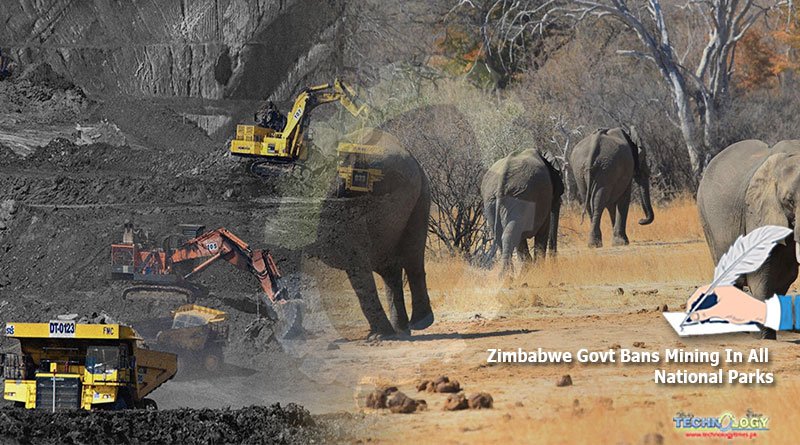Zimbabwe government has banned mining in all its national parks, as well as along most river beds, following public outrage.

Zimbabwe has banned mining in all its national parks, as well as along most river beds, following public outrage prompted by the government’s decision to let Chinese firms explore for coal in Hwange, Zimbabwe’s biggest national park — causing #SaveHwangeNationalPark to trend on Twitter.
Weeks of campaigns led to an urgent appeal before the country’s High Court, arguing that mining would cause “devastating ecological degradation” in the region, which is home to than 45,000 elephants, and more than 100 mammal and 400 bird species, including buffalos, leopards, and lions, and turn their habitats into a “site for drilling, land clearance, road building and geological surveys.” The Zimbabwe Environmental Lawyers Association also expressed concerns about the mining affecting tourism, which is a major source of income for local residents. However, despite the government announcing the ban this week, they do not intend to stop pursuing the case yet, since they are worried that without a court order enforcing the ban, or the ban being enshrined in law itself, the government could grant exemptions to companies, or simply rescind the blanket ban that has been imposed presently.
Long-term, or continuous, mining for coal in any region is believed to deteriorate its natural environment. Coal mining also causes mass displacement of locals, with reports suggesting that 87,000 Indians have been displaced over the past 40 years due to developmental activities by state-owned Coal India Limited (CIL), which accounts for about 83% of India’s overall coal production. Reports of human rights abuses, in relation to mining activities, inflicted especially on the indigenous Adivasi communities in India, are also rampant. According a report by the Comptroller and Auditor General of India in 2019, CIL’s mining activities also led to far-reaching consequences on local biodiversity, in addition to air, noise, and water pollution, alongside land degradation — even the transportation of materials for coal mines are are believed to leave cancerous environment in their trail.
Recently, in India, the debate surrounding coal mining, has again garnered mainstream attention — the Indian government is opening up commercial coal mining to the private sector after decades, challenged by the government of Jharkhand, where several coal mines are located, on grounds that it stands to lose vital forest cover, in addition to its tribal communities facing mass displacement, as a result of the government’s move. Also, with the Environment Impact Assessment Notification, 2020, proposing to exempt a list of projects, including prospecting for coal, a precursor to mining, from prior requirements, environmentalists are worried about greater damage to the ecosystem.
However, in the case of Zimbabwe, while mining threatens the ecology and biodiversity, besides affecting the livelihoods of who depend on tourism, reportedly, there are also concerns that the ban on mining along most river beds would affect small-scale, local gold miners. And, such negative impacts of an otherwise positive step towards safeguarding the environment, isn’t unique to Zimbabwe alone. In India, too, household incomes fell by more than half after certain bans on mining in states like Goa, Karnataka, and Odisha, with reports noting “joblessness and financial crunch to run families.”
In the interest of safeguarding the environment, and human rights of locals, alongside providing alternate sources of livelihoods to those impacted by mining bans, it is of paramount importance for policymakers, across the globe, to come up with long-term solutions to mining activities.
The article is originally published at The Swaddle.
